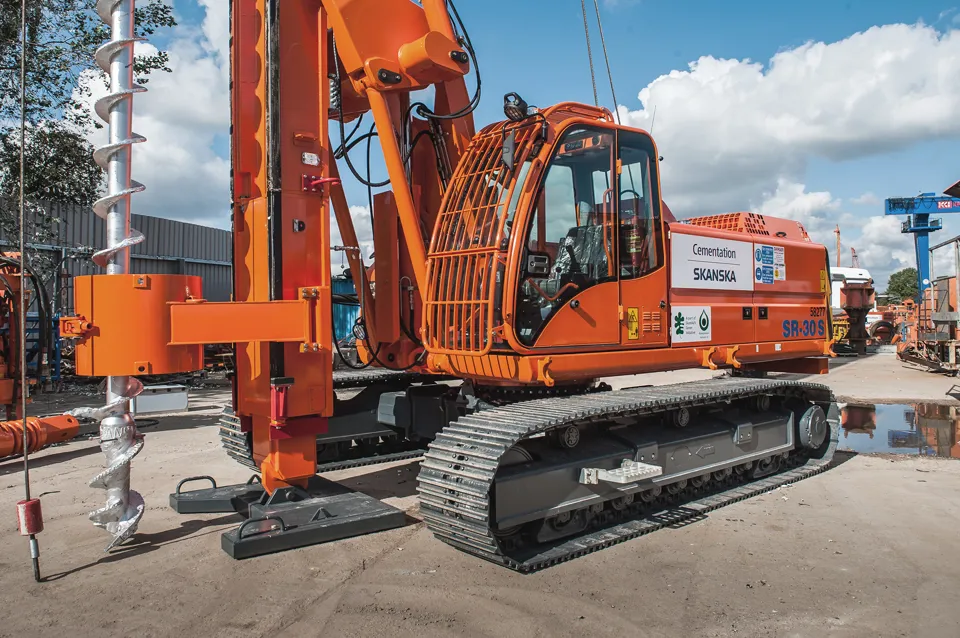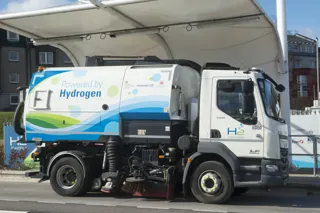ULEMCo is working with Skanska to develop the first hydrogen dual fuel conversion for construction equipment.
The project will provide a proof of concept for converting on-site construction equipment. It will deliver a converted piling rig, as well as exploring the viability of hydrogen fuel for construction site decarbonisation.
The trial is being carried out on a Soilmec SR30 rotary and CFA piling rig at Cementation Skanska’s plant and fabrication facility at Bentley Works, south Yorkshire. The rig, with its Cummins QSB6.7 engine, can typically use 100 litres of diesel per day of operation, leading to 262Kg of CO2 emissions.
While transport applications of hydrogen fuel are becoming better known, use of hydrogen to reduce or eliminate emissions in the construction sector is less developed. The test will be undertaken on a piling rig, but the project will use these findings to explore the opportunities for using hydrogen to reduce carbon and significantly improve air quality for a range of heavy-duty, non-road machinery typically used in the early stages of large infrastructure construction projects.
Named ZECHER for ‘Zero Carbon Hydrogen Construction Equipment for Real-world use’, the project is being backed by Government funding from Phase 1 of the Red Diesel Replacement programme, part of the Net Zero Innovation Portfolio (NZIP) under the Department for Business, Energy & Industrial Strategy (BEIS).
The project will examine the range of equipment used at a construction site, create detailed energy use and duty cycle data, and investigate the requirements and options for addressing the challenges of providing hydrogen at scale across the country. Given the high volumes involved, conversion to hydrogen dual-fuel will enable costs for green hydrogen to fall below that of white diesel, if the barriers of meeting the on-machine storage challenge of energy density are addressed.
“ZECHER plans to show that conversion to dual-fuel will save up to 50% CO2 in this duty cycle, and we expect that it will provide additional emissions benefits such as reduction in NOx and particulates”, said Amanda Lyne, managing director of ULEMCo. “The machines used in construction are owned and used for many years, so demonstrating a decarbonisation solution that utilises these existing assets is not only cost-effective but also important for sustainability.”























Login to comment
Comments
No comments have been made yet.